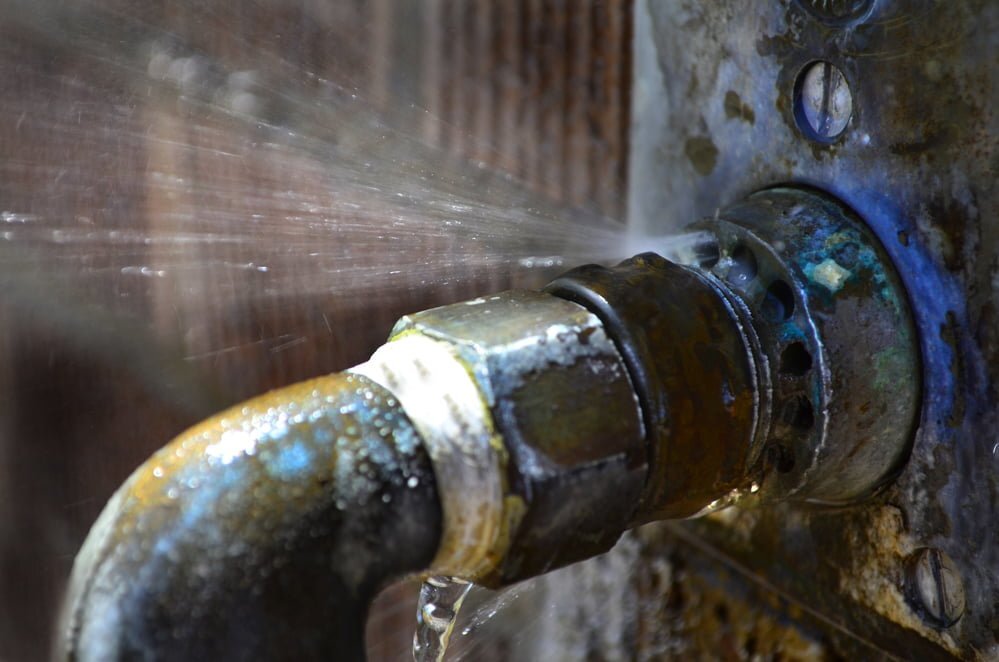High Water Pressure in Your Commercial Building is Critical for the Plumbing
RH Business Marketing Solutions
Many people think that having a high water pressure in your building is a good indication. However, high water pressure in your facility can shorten the life cycle of your plumbing fixtures, leading to expensive and annoying damage like pipe bursts and leaks. In addition, excessive water waste due to pipe leaking and burst is terrible for our environment and might cost more than you think on your plumbing system.
Signs of High Water Pressure in Your Building
Banging Sounds in Pipeline
Many of us already heard that scary hammering or banging noise that is coming out from the pipeline. It happens when high pressure or heavy water flow halts. A fixture such as valves, faucets may stop the water in their tracks.
It is the effect of a high-pressure shock wave sent by the water through your plumbing system; a strong vibration in your plumbing system creates the shuddering sounds in your pipelines.
Burst Pipelines and Leaking Fixtures
Domestic use plumbing fixtures cannot withstand excessive water pressure, unlike in industrial plant pipeline systems. When a high pressure of water flow pushes through the fittings, it can lead to bursting. And it may create a pinhole leakage, which is hard to notice until your ceiling or walls get damaged.
Based on the statistics, a water pressure above 80 pounds per square inch can lead to the failure of water fixtures.
The most common signs of having too much pressure are leaking faucets or spitting, especially if it is out of the cold tap and another telltale sign is a little water spraying stream appears at the slides of the fittings.
High Utility Bills
Try to track your water bills; if you notice a sudden spike in your consumption and pay more than the usual bill range you have, high water pressure could be a possible reason behind it. Because of the high pressure, you can consume more water every time somebody opens a faucet or uses the toilet in your building. As a result, there is wasted money on billing and wasted water.
Running Toilet Facilities
Suppose the toilet facilities in your building keep running and even flushing on their own. In that case, there might be a faulty or passing valve in the pipeline, usually when there are high water pressure issues. Toilet valves tend to quickly wear out due to increased pressure that leads to constant running water from the primary source in the bowl.
Leaking Water Heater System
A leaking water heater system in your building is possibly due to excessive water force in the supply line, as the internal parts cannot withstand high pressures. You should be aware that the water pressure in your building does not exceed 80 psi. Otherwise, your whole portable plumbing system is at risk.
Causes of Excessive Water Pressure
High Rise Structures
In most cases, the sudden water pressure changes in the primary line are the supplier's responsibility. And please note that you can experience intense water pressure in your pipeline if high-rise buildings surround your building. Therefore, the supplier will give high water pressure in that specific zone to reach the water on the top floors.
Maintenance In The Water Network
When your water network line undergoes maintenance, a trapped pressure will stay on the line after the supplier closes the main isolation valve. As a result, it can cause a sudden and temporary increase in the pressure in the pipeline.
How To Regulate High Water Pressure
Fortunately, controlling high water pressure is pretty simple, especially if the primary isolation of your plumbing system is easily accessible and secured with louvered access doors and panels; you can even do it by yourself. For example, you can try to throttle your plumbing system's upstream main isolation valve so that the whole plumbing system in your building or on the downstream side has a minimum or has safe water pressure enough for your consumption. Or you can call a professional plumber to install a water pressure regulator device in your line to prevent any damage to the plumbing system in your building.
Guest Contributor: Chris Jackson
